Florida is home to many wildlife species, native, non-native, and invasive! On your tours, you may be lucky enough to encounter some of these animals. Florida is known for wildlife such as alligators and sea turtles and our small Key Deer. We also have a wide variety of aquatic birds. It would be impossible to list them all in one blog post, so I’ll just hit some highlights for this area.
–
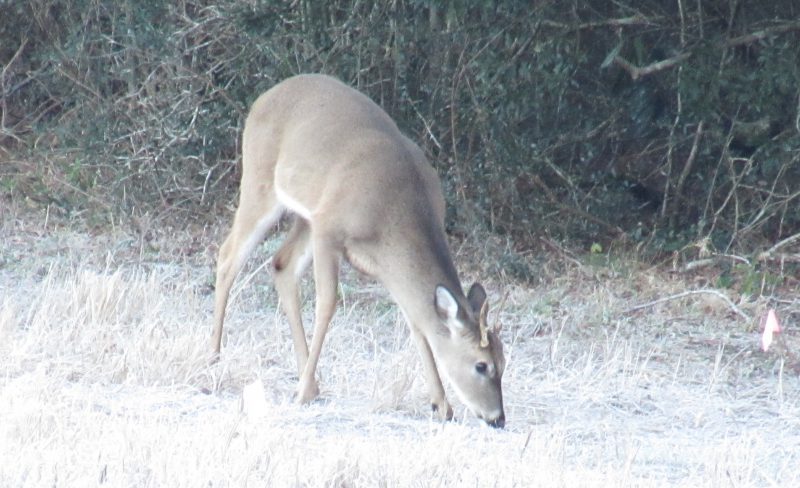
Photo Credit: Jennifer Bearden
–
White-tailed Deer are in rut (breeding season) in South Florida now. Florida has the widest range of deer breeding season of any state in the nation. Deer rut in Florida goes from July in south Florida to March in north Florida.
–
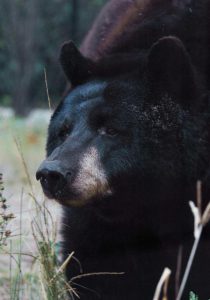 Florida Black Bears are increasing in numbers in our great state. You may catch a glimpse of one lumbering around or just curiously sitting by observing the scenery. With the increase in bear populations and increased urban sprawl, we see more bear encounters. Generally our biggest problems are with trash bins and beehives!
Florida Black Bears are increasing in numbers in our great state. You may catch a glimpse of one lumbering around or just curiously sitting by observing the scenery. With the increase in bear populations and increased urban sprawl, we see more bear encounters. Generally our biggest problems are with trash bins and beehives!
–
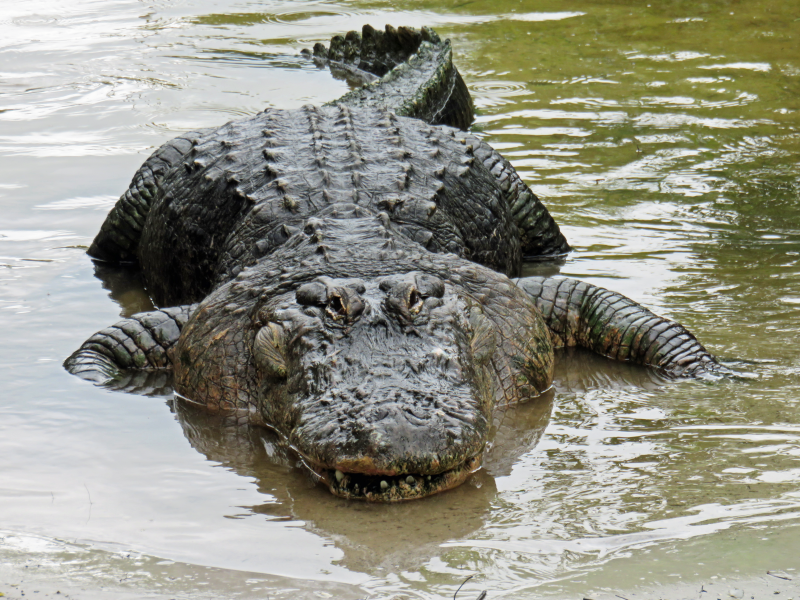
Breeding age mature Florida gator. Photo Credit: Doug Mayo, UF/IFAS
American Alligator is our official state reptile as well as the mascot of the University of Florida (Go Gators). You may catch a gator sunbathing near a waterbody during your tour. Hopefully, you didn’t miss the baby gators in the tradeshow!–
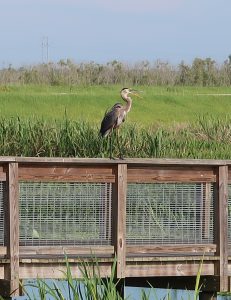
Photo Credit: Tatiana Sanchez
Great Blue Heron is a large bird at about four feet tall with a six-foot long wingspan. You may see this big bird fishing along oceans, lakes, rivers, and marshes around the state.
–
You may also see some invasive species!
–
Wild Hogs were introduced to Florida by Spanish Explorers in the 1500s. With a high reproductive rate, these invaders are difficult to control. They are harmful to native reptiles, amphibians and birds. They also impact crop fields and pastures as they root or dig in search of food.
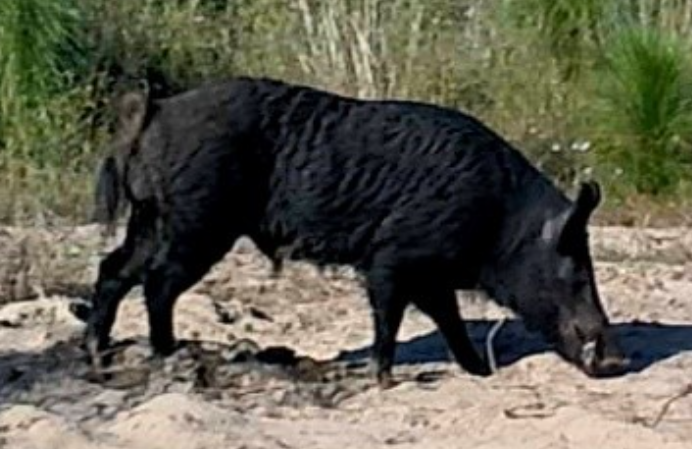
Photo Credit: Jennifer Bearden
–
Iguanas are a problem for South Florida. They cause damage to commercial and residential landscapes. They have even been spotted here at the host hotel. South Florida has falling iguana warnings when temperatures fall and cause iguanas to “freeze” and fall from trees.
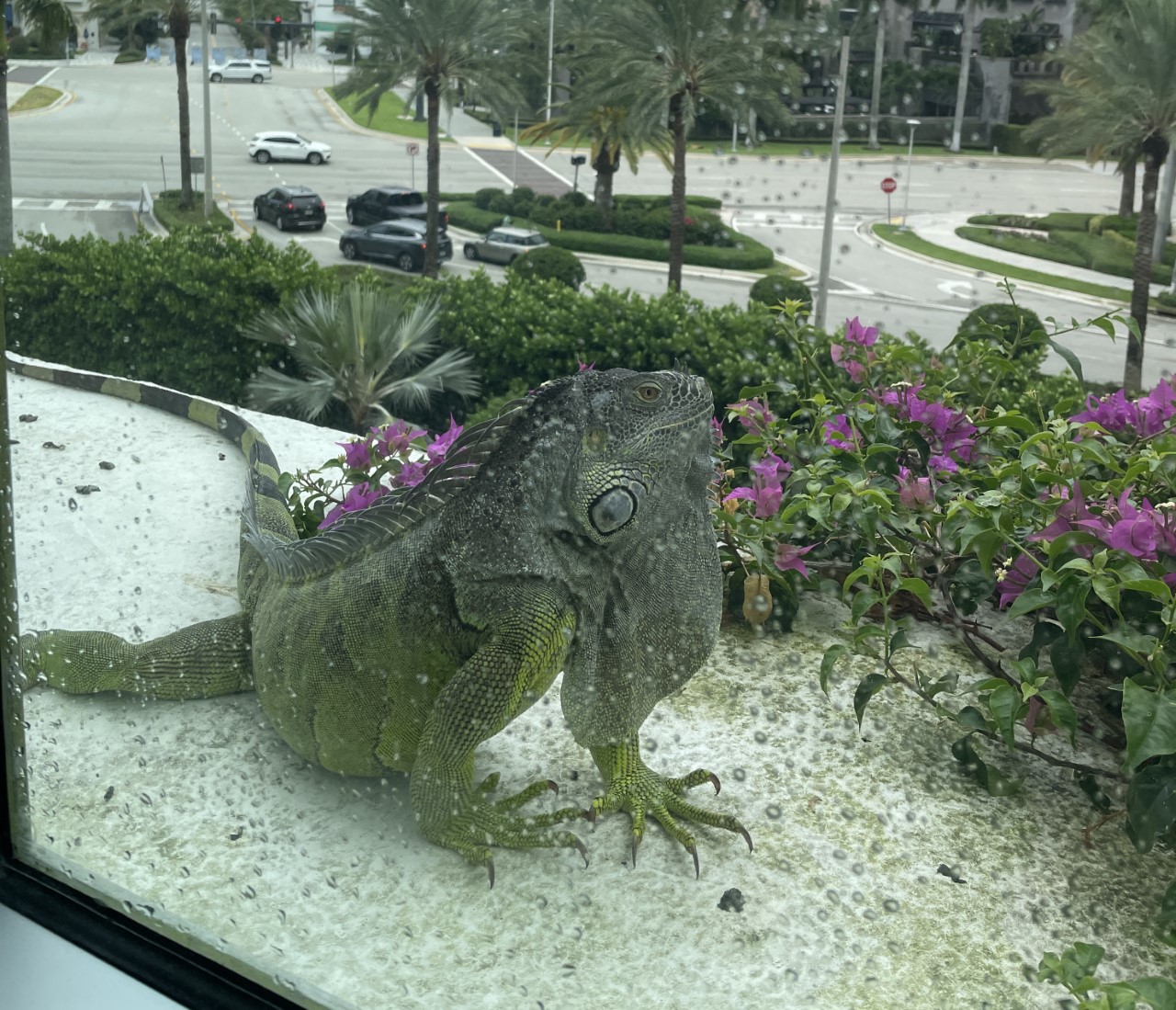
Iguana on a ledge at the Palm Beach Hilton Hotel, taken during NACAA AMPIC 2022. Photo Credit: Wendy Wilber
–
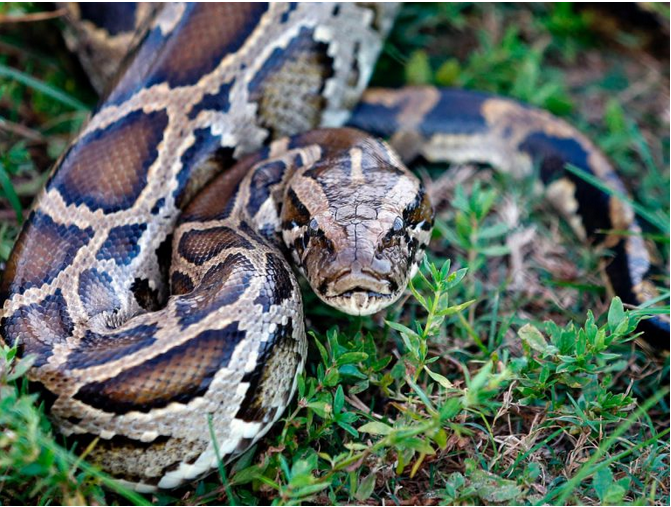 Burmese Pythons were first found in the Everglades in 1979. It was likely a pet that was released or escaped captivity. A recordbreaking python was recently captured. It was 215lb and 18 feet long. If you want to stay and help rid the Everglades of this invasive, stick around for the Florida Python Challenge that starts August 5. There are a number of snake species that thrive in the South Florida environment. For more information, check out the publication: Large Snake Lineup for South Florida: A Guide to Differentiating between Non-Native and Native Snakes
Burmese Pythons were first found in the Everglades in 1979. It was likely a pet that was released or escaped captivity. A recordbreaking python was recently captured. It was 215lb and 18 feet long. If you want to stay and help rid the Everglades of this invasive, stick around for the Florida Python Challenge that starts August 5. There are a number of snake species that thrive in the South Florida environment. For more information, check out the publication: Large Snake Lineup for South Florida: A Guide to Differentiating between Non-Native and Native Snakes
–
For more information about wildlife here in Florida, go to MyFWC or VisitFlorida
- Life Member and Spouse Adventures in Florida - July 28, 2022
- Farewell Steak Dinner at the South Florida Fairgrounds - July 20, 2022
- Wild Florida – Wildlife You May See on Your Thursday Tour - July 20, 2022